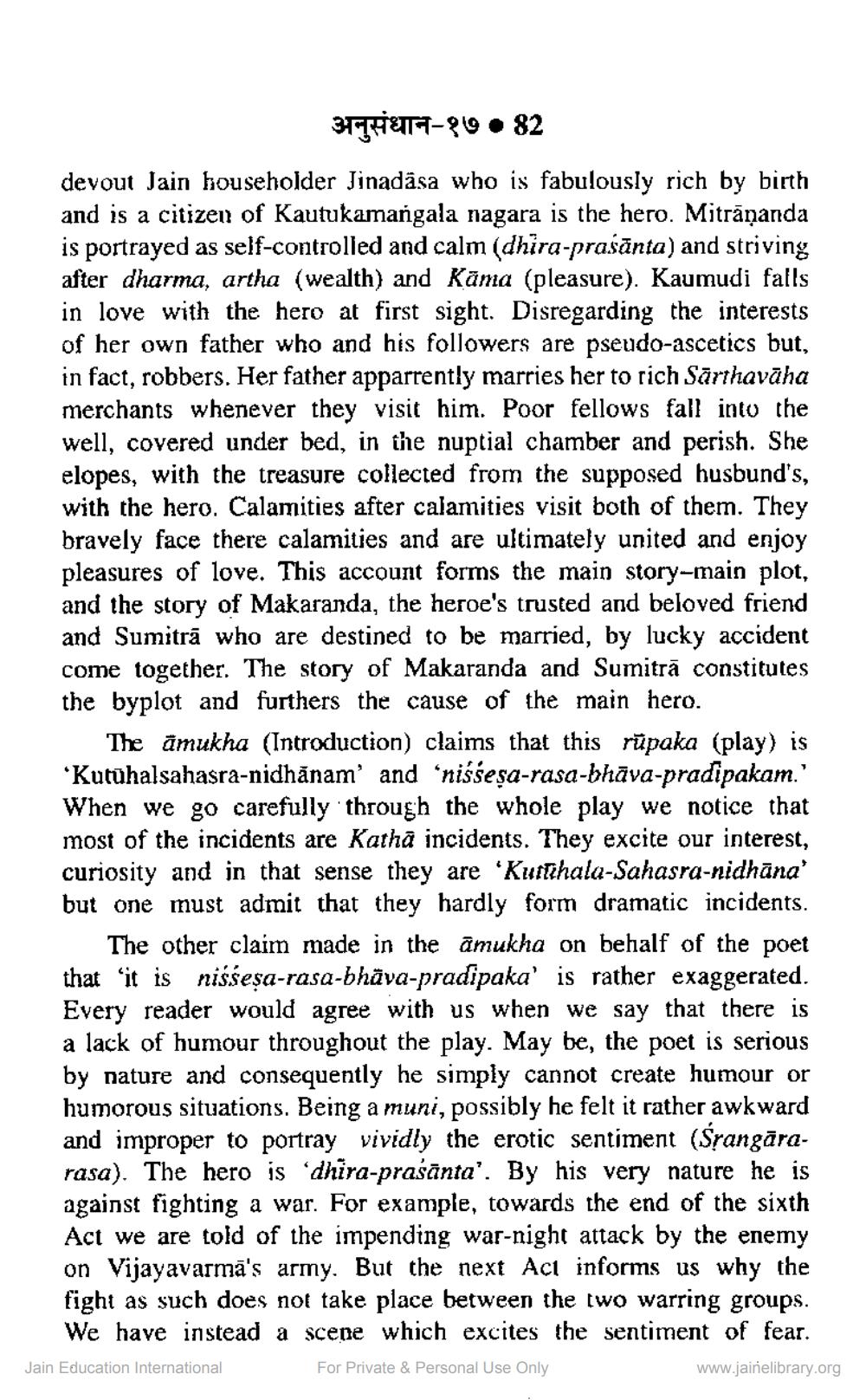Book Title: Some Aspects of Kaumudimitranand Author(s): V M Kulkarni Publisher: ZZ_Anusandhan View full book textPage 8
________________ 3TTHET-8982 devout Jain householder Jinadāsa who is fabulously rich by birth and is a citizen of Kautukamangala nagara is the hero. Mitrānanda is portrayed as self-controlled and calm (dhira-praśānta) and striving after dharma, artha (wealth) and Kama (pleasure). Kaumudi falls in love with the hero at first sight. Disregarding the interests of her own father who and his followers are pseudo-ascetics but, in fact, robbers. Her father apparrently marries her to rich Sārthavāha merchants whenever they visit him. Poor fellows fall into the well, covered under bed, in the nuptial chamber and perish. She elopes, with the treasure collected from the supposed husbund's, with the hero. Calamities after calamities visit both of them. They bravely face there calamities and are ultimately united and enjoy pleasures of love. This account forms the main story-main plot, and the story of Makaranda, the heroe's trusted and beloved friend and Sumitrā who are destined to be married, by lucky accident come together. The story of Makaranda and Sumitrā constitutes the byplot and furthers the cause of the main hero. The amukha (Introduction) claims that this rūpaka (play) is *Kutuhalsahasra-nidhānam' and 'niśšesa-rasa-bhāva-pradipakam.' When we go carefully through the whole play we notice that most of the incidents are Kathā incidents. They excite our interest, curiosity and in that sense they are 'Kurthala-Sahasra-nidhana' but one must admit that they hardly form dramatic incidents. The other claim made in the āmukha on behalf of the poet that it is nissesa-rasa-bhāva-pradipaka' is rather exaggerated. Every reader would agree with us when we say that there is a lack of humour throughout the play. May be, the poet is serious by nature and consequently he simply cannot create humour or humorous situations. Being a muni, possibly he felt it rather awkward and improper to portray vividly the erotic sentiment (Srangārarasa). The hero is 'dhira-prašānta'. By his very nature he is against fighting a war. For example, towards the end of the sixth Act we are told of the impending war-night attack by the enemy on Vijayavarmā's army. But the next Act informs us why the fight as such does not take place between the two warring groups. We have instead a scene which excites the sentiment of fear. Jain Education International For Private & Personal Use Only www.jainelibrary.orgPage Navigation
1 ... 6 7 8 9 10 11 12 13 14 15 16 17 18 19
